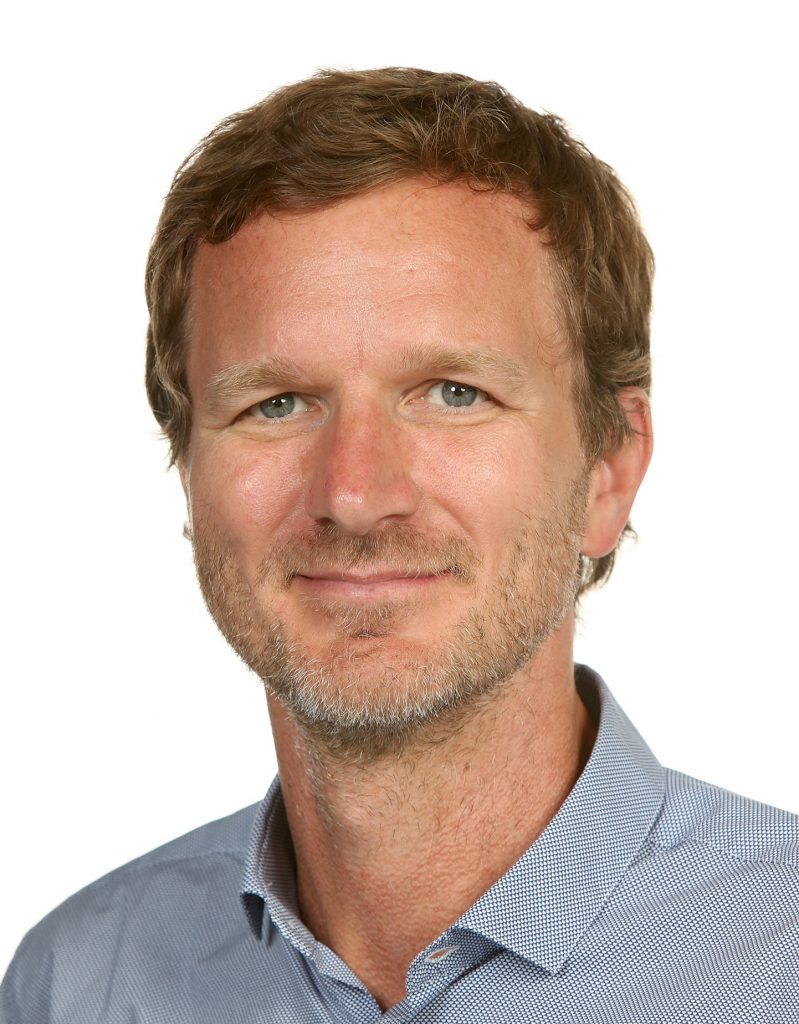
This webinar with the University of Nottingham will look at Commercial Applications for Next Generation Biomaterials.
The biomaterials discovery programme at the University of Nottingham has been targeting novel polymers with application as coatings for existing medical devices to reduce infection rates and controlling foreign body reaction, cell culture consumables for expansion and differentiation of stem cells, particulates for targeting therapeutic delivery for cancer and infections and surfaces to control viral, fungal and bacterial attachment in a wide variety of industries. They are looking for industrial organisations to partner with in the exploitation of these materials.
Presentations will include:
– Controlling bacterial biofilms formation using polymers
– Controlling foreign body reaction to medical implants using coatings
– New materials for breast cancer therapies
– Technologies to control Fibrosis
There will be a Q&A session during the webinar. We have also created a facility post event (11.30am – 12.00pm) for you to join the presenters in a Microsoft Teams meeting to ask further questions directly to the presenters. Details of this meeting will be shared during the webinar.
This free to attend event is held as part of the INSTILS programme – a project part-funded by the European Regional Development Fund, click here to be re-directed to further information about the project. This event is classed as State Aid to participating businesses, the value of which is £190, but is delivered completely free of charge to participants.
The Biomaterials Discovery project at the University of Nottingham has funding available to partner with industrial partners that are keen to explore its emerging novel biomaterials and their potential in healthcare in short proof of concept studies. They encourage any companies that can see application of these technologies in their area to contact the panellists in the discussion session or send us an email. Please click here to contact the team.
SPEAKER PROFILES:
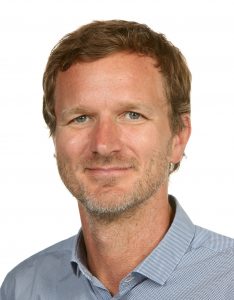
Professor Morgan Alexander, Professor of Biomedical Surfaces, University of Nottingham
Morgan Alexander is Professor of Biomedical Surfaces, the Director of the EPSRC Programme Grant in Next Generation Biomaterials Discovery and a Wellcome Trust Senior Investigator based in the School of Pharmacy at the University of Nottingham. He received his BSc in Materials (1988) and his PhD from the same department at The University of Sheffield in 1992.
His work involves developing materials for application in human healthcare and characterising relationships between surface structure and biological properties. Understanding these relationships is critical to the development of next generation biomaterials and it is the theme running through his group’s work across a variety of areas spanning control of bacterial adhesion, to engineering cell response with applications in medical devices and cell manufacture.
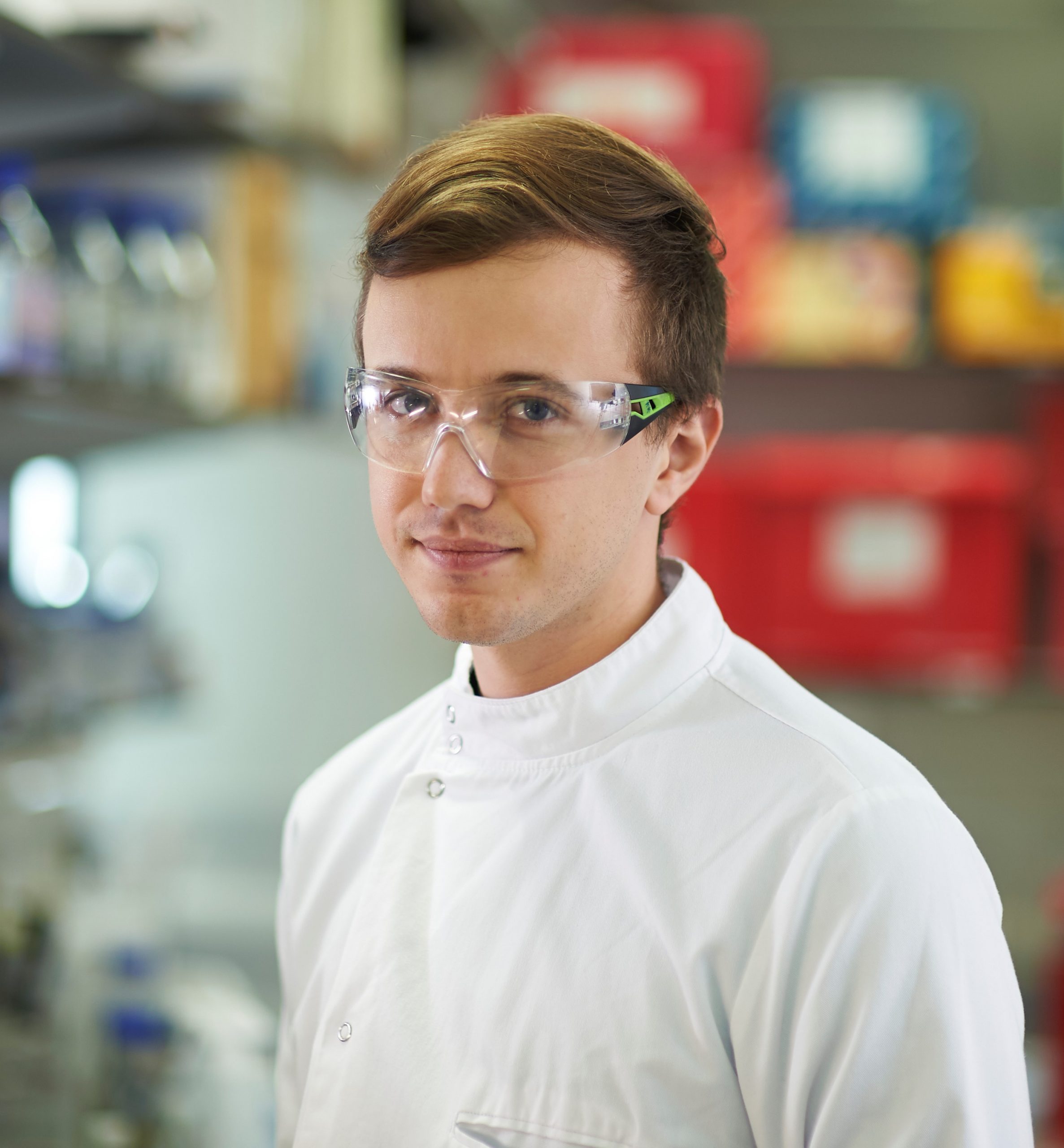
Kiril Kalenderski, PhD Student, University of Nottingham
Kiril is a researcher at the University of Nottingham, studying biofilm formation on bio-material surfaces developed as medical device coatings. He has predominantly worked with indwelling urinary catheters, to determine the efficacy of bio-material coatings in reducing biofilm formation on these devices, within in vitro experiments and clinical settings.
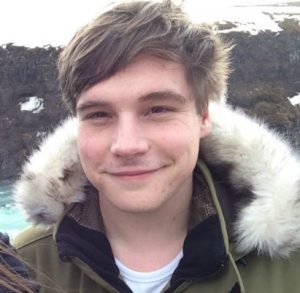 Dr Robert Cavanagh, Research Fellow, University of Nottingham
Dr Robert Cavanagh, Research Fellow, University of Nottingham
Rob completed his PhD in Drug delivery in 2017 at the University of Nottingham and focused on investigating intestinal permeability enhancers for the delivery of biologics. He joined Professor Cameron Alexander’s group in December 2017 as a post-doctoral researcher studying chemotherapeutic delivery using novel polymeric nanoparticles.
 Dr Patrícia Monteiro, Research Fellow, University of Nottingham
Dr Patrícia Monteiro, Research Fellow, University of Nottingham
Patrícia received a B.Sc. and M.Sc. in Pharmacy and Pharmaceutical Sciences from the Federal University of Ouro Preto (UFOP), Brazil. In 2019 she completed her Ph.D. in drug delivery at the University of Nottingham. She then joined the EPSRC Programme Grant in Next Generation Biomaterials Discovery as a post-doctoral researcher. Her current research is focused on the development of bioresponsive polymers for triple negative breast cancer therapy.
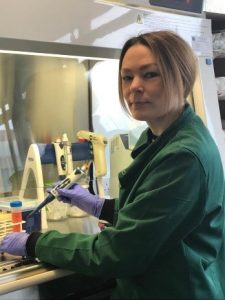 Dr Leanne Fisher, Research Fellow, University of Nottingham
Dr Leanne Fisher, Research Fellow, University of Nottingham
School of Life Sciences, Immunology and Immuno-bioengineering Group
Leanne’s research has focussed on the design and development of antimicrobial/anti-fouling surfaces to prevent the formation of biofilms on medical devices. More recently, she has been studying the impact of surface engineering on immune modulation and prevention of the foreign body response. Alongside this, Leanne works in developing immune-competent biomimetic tissue models, specifically organ-on-a-chip models.

Dr Matthew Vassey, Research Fellow, University of Nottingham
Matthew received a B.Sc. in Microbiology and Cellular Biology in 2005 at the University of Nottingham. In 2014 he completed his Ph.D. in Cellular Microbiology also at the University of Nottingham. He joined the EPSRC Programme Grant in Next Generation Biomaterials Discovery as a post-doctoral researcher in November 2017. His current research is focused on cell biology, human iPSC derived cells, 3D biology, host-pathogen interactions and infection biology.

Arsalan Latif, PhD Student, University of Nottingham
Arsalan is a final year doctoral student researching in developing stromal instructive niches to promote healing and suppress fibrosis, at the University of Nottingham. Before which he did his master’s in biomedical engineering at Chalmers University of Technology, Sweden. Besides science, he enjoys building Lego models in his spare time.

